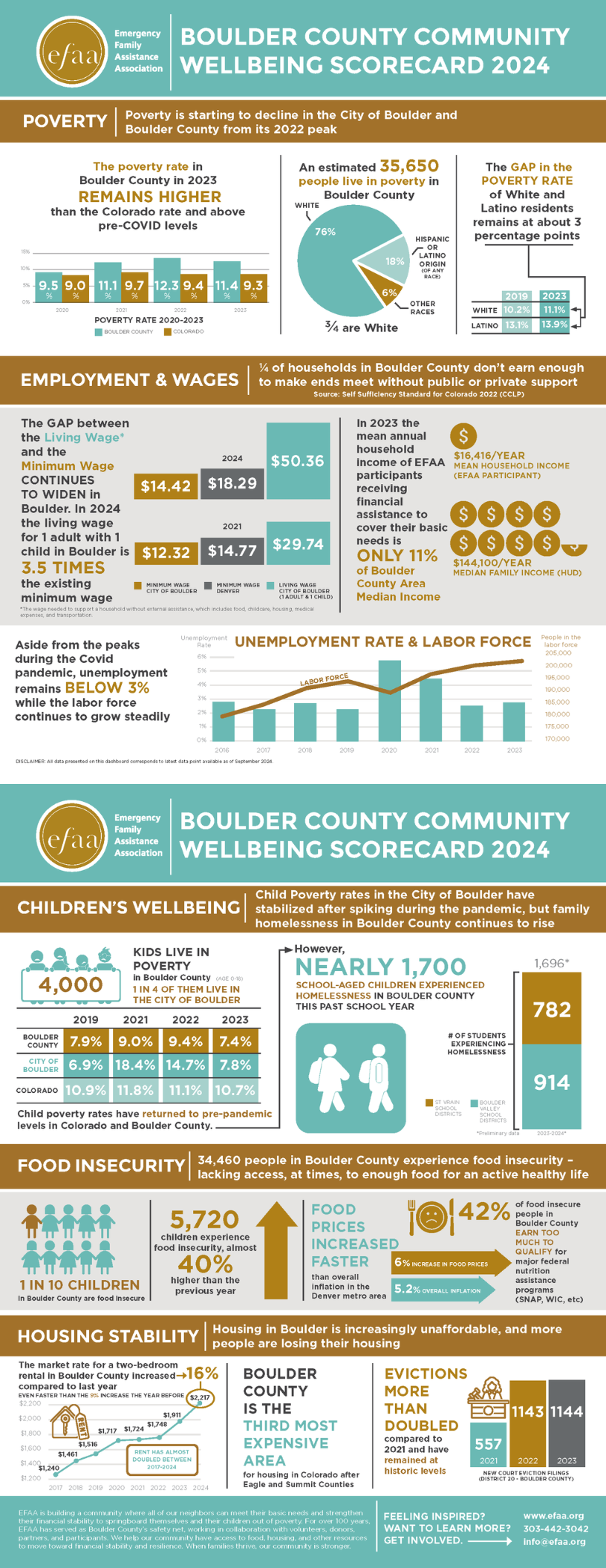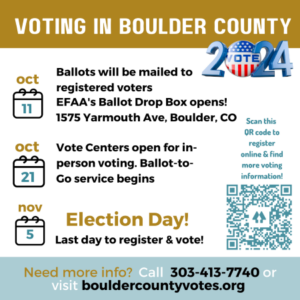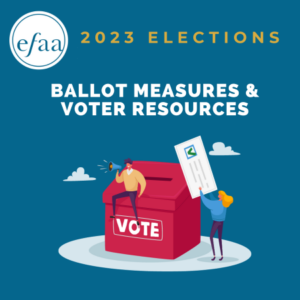Why It Matters

The Issues at a Glance
A job is no longer a protection against housing insecurity or a guarantee that basic needs will be met. Income and wages are at the heart of the issue. Wages have not kept pace with inflation, particularly for lower-income workers.
Read our policy memo on minimum wage here.
Family homelessness is a critical, yet oftentimes invisible, issue in our community. Almost 1,000 school-aged children in Boulder County experience homelessness each year. These families are without permanent, stable housing and may be couch surfing with friends and family, living in their cars, staying in shelters and motels, or camping through the summers. Housing costs, changes in employment, disruptions in household structure (divorce or death in the family), and domestic violence are the key drivers of family homelessness. The experience of homelessness itself is stressful and traumatic for the whole family. The effects on these families, particularly the long-term implications for children, are devastating. Read our issue briefing on family homelessness here.
The effects of childhood poverty are dramatic and lifelong. There are over 4,700 children (8%) in Boulder County living below the federal poverty line. Research has shown that children who are born into low-income families are less likely to obtain degrees, have poorer health outcomes, and have inconsistent employment records. Poverty can even affect a child’s brain development. Children are the most likely to become trapped in the cycle of poverty, meaning if they are born into a low-income family it is likely that they will remain low-income as adults. Read our issue briefing on child poverty here.
The average rent for a two-bedroom apartment in Boulder County is $1,717. Due to the high cost of housing, 31% of children in Boulder County live in highly cost-burdened families. The City of Boulder loses 1,000 market-affordable housing units each year.
With families spending so much of their income on housing, there is little left over for basic needs like food, medical care, transportation, and child care – let alone the ability to save for emergencies. Read our issue briefing on housing insecurity here.
In Boulder County, over 28,000 people, about 20% of them being children, suffer from food insecurity. Food insecurity is the lack of access, at times, to enough food for an active, healthy life for all household members and limited or uncertain availability of nutritionally adequate food. Nearly 1 in 4 students in City of Boulder public schools are eligible for free and reduced lunch, with the greatest share of children in the program being elementary school students.
When people lack consistent access to healthy, nutritious food, it can touch many areas of their lives. Food insecurity can lead to Type 2 diabetes, high blood pressure, heart disease and obesity—while also making it more difficult to control food related health conditions. For children, food insecurity puts them at higher risk for developing health conditions such as asthma and anemia, and makes them more likely to struggle in school and social situations. Read our issue briefing on food insecurity here.
In Boulder County, a single adult with two children would need to earn $78,926 per year – nearly four times the federal poverty level – in order to be considered economically self-sufficient. The average EFAA family only earns $13,200 per year. Due to stagnant wages, those working full-time still aren’t earning enough to actually make ends meet.
Low-earning households also face the challenge of the ‘cliff effect’. Most of these families qualify for government benefits (e.g., Medicaid, SNAP, child care assistance) that help cover the cost of basic necessities. But if earnings increase, families risk losing these benefits, which could actually cause their financial positions to become worse.
Family homelessness, childhood poverty, housing insecurity, and food insecurity are all exacerbated by inadequate wages that have failed to increase with the cost of living. Read our issue briefing on income and wages here.





